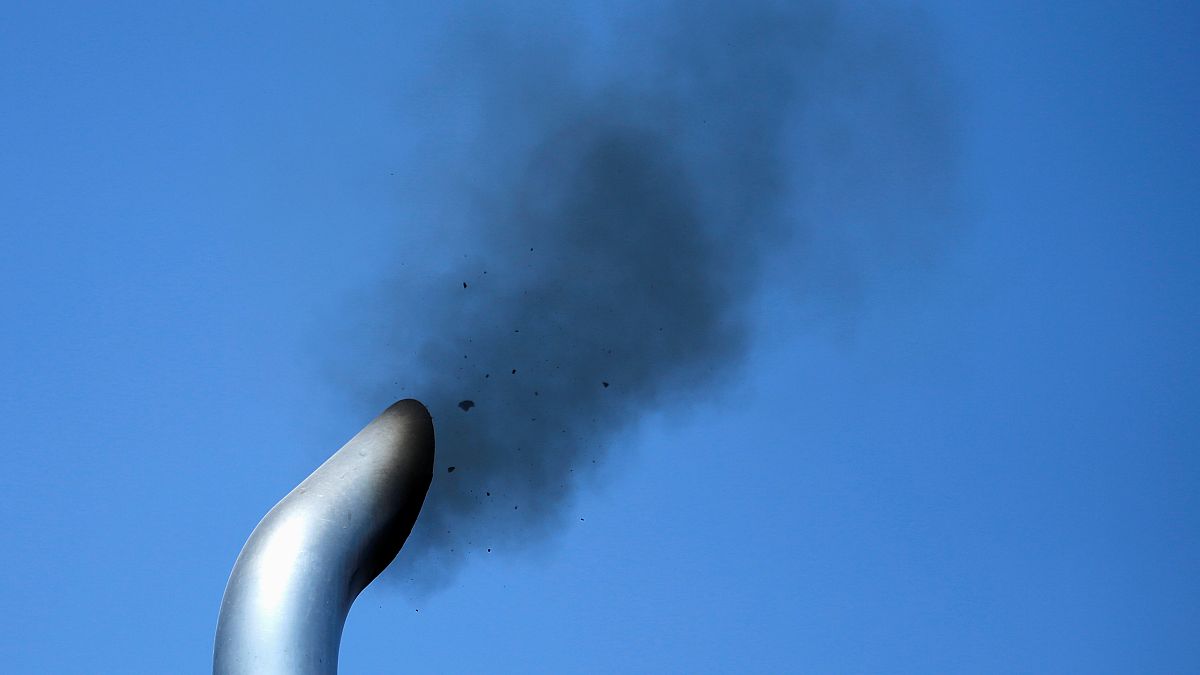Most of the damage costs of road-related air pollution are health costs.
Air pollution caused by road traffic and diesel emissions cost the European Union up to €80 billion in 2016, a new study revealed on Tuesday.
The research, conducted by CE Delft, a Netherlands-based independent research organisation, found that most of the damage costs for road traffic air pollution are related to health costs.
The World Health Organisation estimated this year that air pollution was behind more than four million premature deaths worldwide every year, of which 500,000 are in Europe.
Health effects specifically linked to diesel emissions include lung cancer, asthma, stroke, and acute respiratory infection.
Emerging evidence also suggests pollution from diesel emissions may cause dementia, type 2 diabetes as well as pre- and post-natal effects, including premature birth and low birth weight.
To reach its tally, the research, which was commissioned by the European Public Health Alliance (EPHA), looked at the total health costs of those diseases. It estimated that the 28 EU member states had spent a combined €66.7 billion to €79.8 billion in 2016.
'Stringent emission policies'
Policy-makers have come under increased pressure to tackle air pollution since the so-called Dieselgate scandal in 2015, which found that several car manufacturers, most prominently Germany's Volkswagen, had cheated emissions tests.
This research can only add to the pressure.
It found that diesel is responsible for 83% of air pollution cost in the EU and that the share of diesel in the nine EU states it assessed in more detail ranges from 66% to 92%.
But it also found that "stringent emission policies can result in large reduction of societal damage of air pollution and significant cost saving for governments and health insurers."
It estimates that health costs could be cut by 74% in 2030 compared to 2016 if EU member states implement a "low ambition scenario" whereby a quarter of all new cars are electric and a ban on all pre-2014 vehicles is introduced.
A "high ambition scenario", which would raise the share of electric vehicles to two-thirds of new cars and extend the ban to all diesel cars as well as all pre-2014 models, would slash cost by 80% compared to two years ago.
"The European institutions and Member States are still not making the bold choices and commitments necessary to tackle diesel pollution for the benefit of all our health, as shown by the downgraded ministerial summit due to take place today," Yves Brand, Vice President of the EPHA, said in a statement to Euronews.
"I am confident that these new insights into health costs and the significant savings for national budgets tackling air pollution could bring should leave no doubt for the need of urgent action by our governments," he added.
What are governments doing?
London put a congestion charge in place 15 years ago to reduce traffic in the centre of the city and an increase, targeting the most polluting vehicles, will come into force in April next year.
In Paris, emergency measures to halve the number of cars on the road when spikes in air pollution have been recorded, have had to be implemented in recent years.
Governments have also started to roll out action plans to curb road traffic-related air pollution and boost the sale of electric vehicles. Most have been criticised as either not going far enough or being too costly.
In France, where the government raised taxes on fuel as part of its environmental policy, protests have now been ongoing for nearly two weeks. The citizen 'gilets jaunes' (yellow vests) movement blocked access to some roads, commercial areas or refineries. A protest in Paris on Saturday also turned violent.
